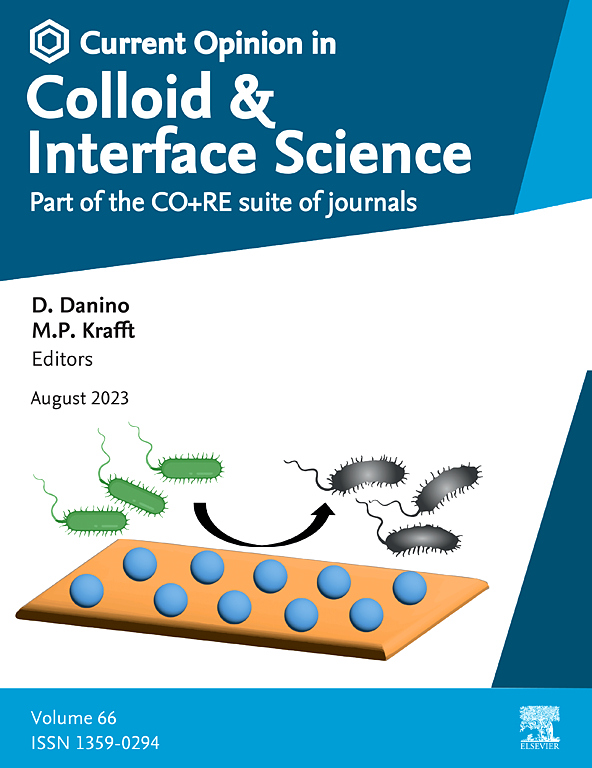利用脂肪结构来提高口感、营养和可持续性
IF 7
2区 化学
Q1 CHEMISTRY, PHYSICAL
Current Opinion in Colloid & Interface Science
Pub Date : 2025-08-16
DOI:10.1016/j.cocis.2025.101953
引用次数: 0
摘要
从历史上看,出于健康考虑,脂肪和油的摄入量一直是食品中减少的目标。然而,最近的理解强调了脂质作为提供能量、必需脂肪酸和维生素的营养素的重要作用。食品工业在开发营养最佳、环境可持续和感官吸引的产品方面面临挑战。世界卫生组织建议减少饱和脂肪酸(SFAs)的摄入。富含sfa的油的生产通常与生态问题有关,包括温室气体排放和森林砍伐。尽管存在这些挑战,富含sfa的油在食品生产中提供了技术优势,例如在室温下是固体和结构食品,并且具有抗氧化性。这篇意见论文分析了通过减少食品中的SFAs来利用脂质营养的策略,同时保留了感官属性。这些包括控制脂肪结晶、油凝胶(“凝胶”液体油)的形成、由脂质稳定的泡沫和乳液凝胶。强烈强调消费者的看法,工业可行性,监管方面,成本和可持续性在食品工业给出。本文章由计算机程序翻译,如有差异,请以英文原文为准。
Leveraging fat structuration for enhanced taste, nutrition, and sustainability
Historically, intake of fats and oils has been targeted for reduction in food products due to health concerns. However, recent understanding emphasizes the essential role of lipids as nutrients that provide energy, essential fatty acids, and vitamins. The food industry faces challenges in developing products that are nutritionally optimal, environmentally sustainable, and sensory-appealing. The World Health Organization recommends reducing the consumption of saturated fatty acids (SFAs). The production of oils rich in SFAs is often linked to ecological concerns, including greenhouse gas emissions and deforestation.
Despite these challenges, SFA-rich oils offer technical advantages in food production, such as being solid and structuring food at room temperature and their resistance to oxidation. This opinion paper analyzes strategies to leverage lipid nutrition by reducing SFAs in food products while preserving sensory attributes. Those include the control of fat crystallization, oleogels (‘gelled’ liquid oils) formation, foams stabilized by lipids, and emulsion gels. A strong emphasis on consumer perception, industrial feasibility, regulatory aspects, cost and sustainability in the food industry is given.
求助全文
通过发布文献求助,成功后即可免费获取论文全文。
去求助
来源期刊
CiteScore
16.50
自引率
1.10%
发文量
74
审稿时长
11.3 weeks
期刊介绍:
Current Opinion in Colloid and Interface Science (COCIS) is an international journal that focuses on the molecular and nanoscopic aspects of colloidal systems and interfaces in various scientific and technological fields. These include materials science, biologically-relevant systems, energy and environmental technologies, and industrial applications.
Unlike primary journals, COCIS primarily serves as a guide for researchers, helping them navigate through the vast landscape of recently published literature. It critically analyzes the state of the art, identifies bottlenecks and unsolved issues, and proposes future developments.
Moreover, COCIS emphasizes certain areas and papers that are considered particularly interesting and significant by the Editors and Section Editors. Its goal is to provide valuable insights and updates to the research community in these specialized areas.

 求助内容:
求助内容: 应助结果提醒方式:
应助结果提醒方式:


